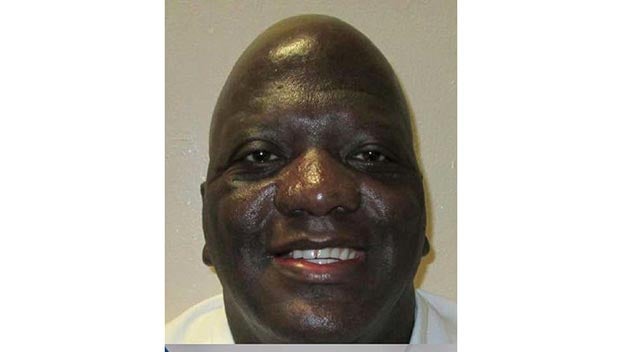Alabama man faces 2nd execution date this year for 1991 killing
Published 5:37 am Thursday, October 21, 2021
An Alabama man who avoided execution in February is scheduled to be put to death Thursday for the 1991 killing of a woman taken at gunpoint from an ATM location and shot in a cemetery.
Willie B. Smith III, 52, is set to receive a lethal injection at 6 p.m. CDT at a southwest Alabama prison for his conviction in the kidnapping and murder of 22-year-old Sharma Ruth Johnson.
Prosecutors said Smith had a shotgun when he abducted Johnson in October 1991 from an ATM location in Birmingham. He withdrew money using her bank card and then took her to a cemetery and shot her in the back of the head. Johnson was the sister of a Birmingham police officer.
This is Smith’s second execution date this year.
Last Feb. 11 — while Smith was in a holding cell near Alabama’s death chamber — the state called off a lethal injection when the U.S. Supreme Court upheld an injunction affirming he could not be executed unless allowed to have his pastor by his side.
The Alabama prison system has now said Smith will be able to have his pastor with him Thursday in the death chamber.
Smith’s attorneys have urged the courts to stay the latest execution plans, saying the inmate has an intellectual disability that prevented him from understanding the prison paperwork related to selection of an execution method.
Experts have estimated Smith’s IQ from 64 on the low end and 75 on the high end, but courts have ruled he is not intellectually disabled and thus eligible for the death penalty. A defense expert in a post-trial appeal said while Smith’s IQ was measured at 64, his language, reading, and mathematics skills, and that these particular results were inconsistent with a diagnosis of intellectual disability.
The Supreme Court ruled in 2002 that executing intellectually disabled people is unconstitutional. In reviewing Smith’s case in 2019, the 11th U.S. Circuit Court of Appeals ruled that a later Supreme Court decision that “states may not weigh a defendant’s adaptive strengths against his adaptive deficits” in determining disability did not retroactively apply to Smith.
Last-minute court filings centered on whether Smith should have given assistance to understand the form distributed to death row inmates in 2018 regarding selection of an execution method. After adopting nitrogen hypoxia as an execution method, state law gave inmates a 30-day window to request that as their preferred execution method.
If Smith had requested nitrogen hypoxia, his death sentence could not be carried out to date because the state has not yet developed a system for using nitrogen to execute inmates.
The Department of Corrections changed some procedures in the face of the COVID-19 pandemic. The prison system limited media witnesses to the execution to one journalist, a representative from The Associated Press.





